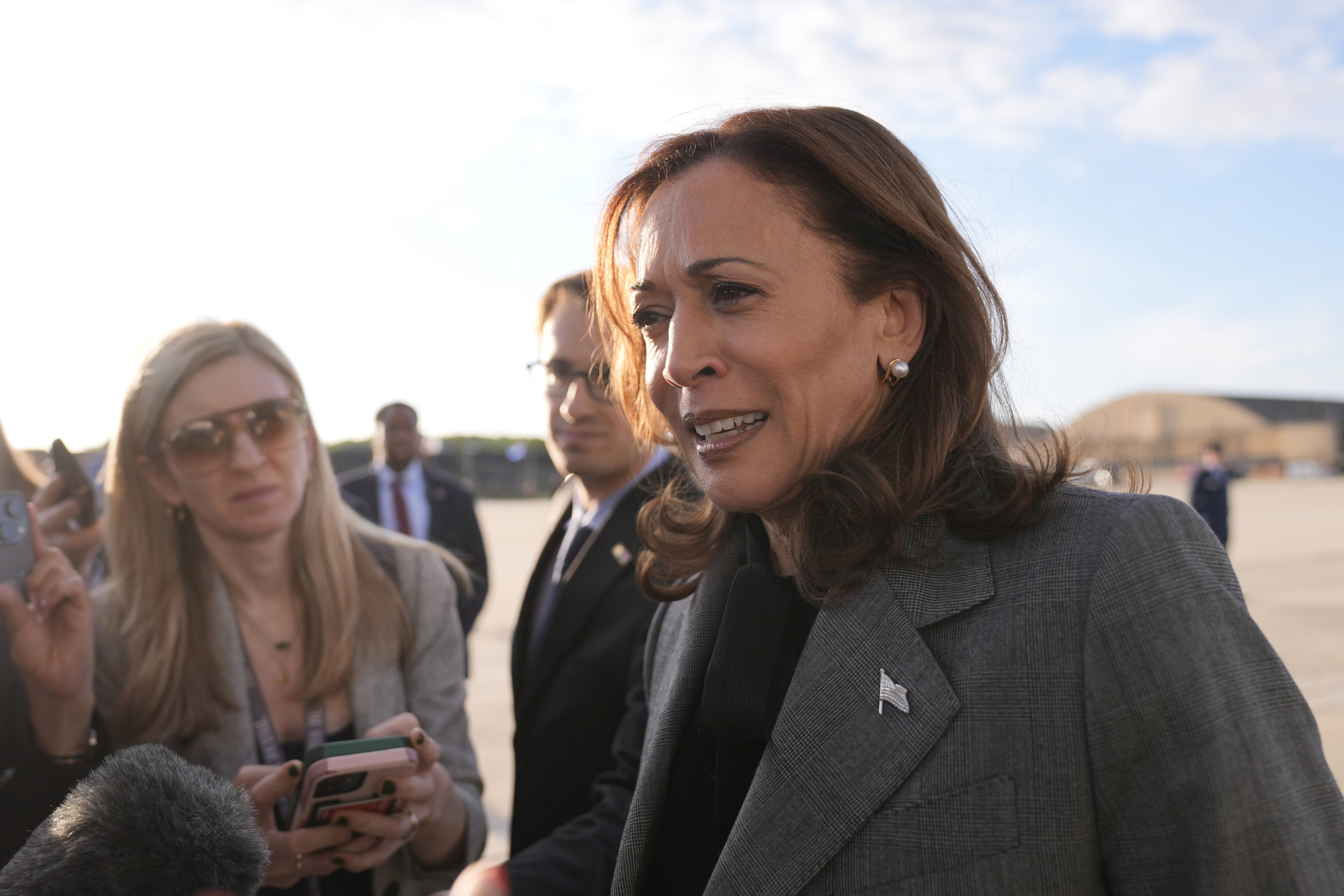Vice President Kamala Harris reached a significant fundraising goal on Sunday, raking in $27 million at a bustling event in New York City—the largest since she became the Democratic Presidential candidate following Joe Biden.
This financial boost comes as she gears up for fierce competition from well-funded groups backing former President Donald Trump, according to a source familiar with the campaign who spoke to The Associated Press on the condition of anonymity.
The upscale fundraiser was held at Cipriani Wall Street, a lavish venue known for its striking Greek Revival architecture.
In her speech, Harris took a jab at Trump, criticizing his hesitation to participate in further debates.

Matt Rourke/AP, Pool
“My opponent seems to be looking for an excuse,” she declared to the enthusiastic audience. “We owe it to the American people to meet once more before Election Day.”
Trump has brushed off the notion of more debates, stating at a rally in Wilmington, North Carolina, that “it’s just too late.” Early voting is already underway in numerous states, including Minnesota, South Dakota, and Virginia.
Alongside her fundraising success, Harris is set to deliver a speech on Wednesday outlining her economic vision, focusing on the need for enhanced investment in American aspirations.
She underscored pressing issues like soaring homeownership costs and grocery prices, stating, “I grew up a middle-class kid, and I will never forget where I came from.”
By honing in on her economic agenda, Harris aims to address a primary concern for voters as inflation continues to rise during Biden’s presidency, and potentially differentiate herself from the President’s contentious economic record.

Morry Gash/AP
Harris is dedicated to advocating for tax cuts for the middle class while advocating for higher taxes on the wealthiest Americans and corporations.
Notably, she backs Trump’s idea to eliminate taxes on tipped wages but plans to restrict this to low- and middle-income earners.
She has also criticized Trump’s high tariff suggestions, arguing that they would unnecessarily inflate consumer prices.
Polling data from the AP-NORC Center for Public Affairs Research reveals that neither candidate currently enjoys a clear edge on economic matters. Approximately 40% of registered voters believe Trump would better manage the economy, while a similar percentage supports Harris. About 10% of voters express skepticism towards both candidates.
As the election draws near, economic concerns are at the forefront, with around 80% of voters citing the economy as a critical factor in their decisions—far outweighing concerns related to healthcare or crime.
This article includes reporting from The Associated Press
